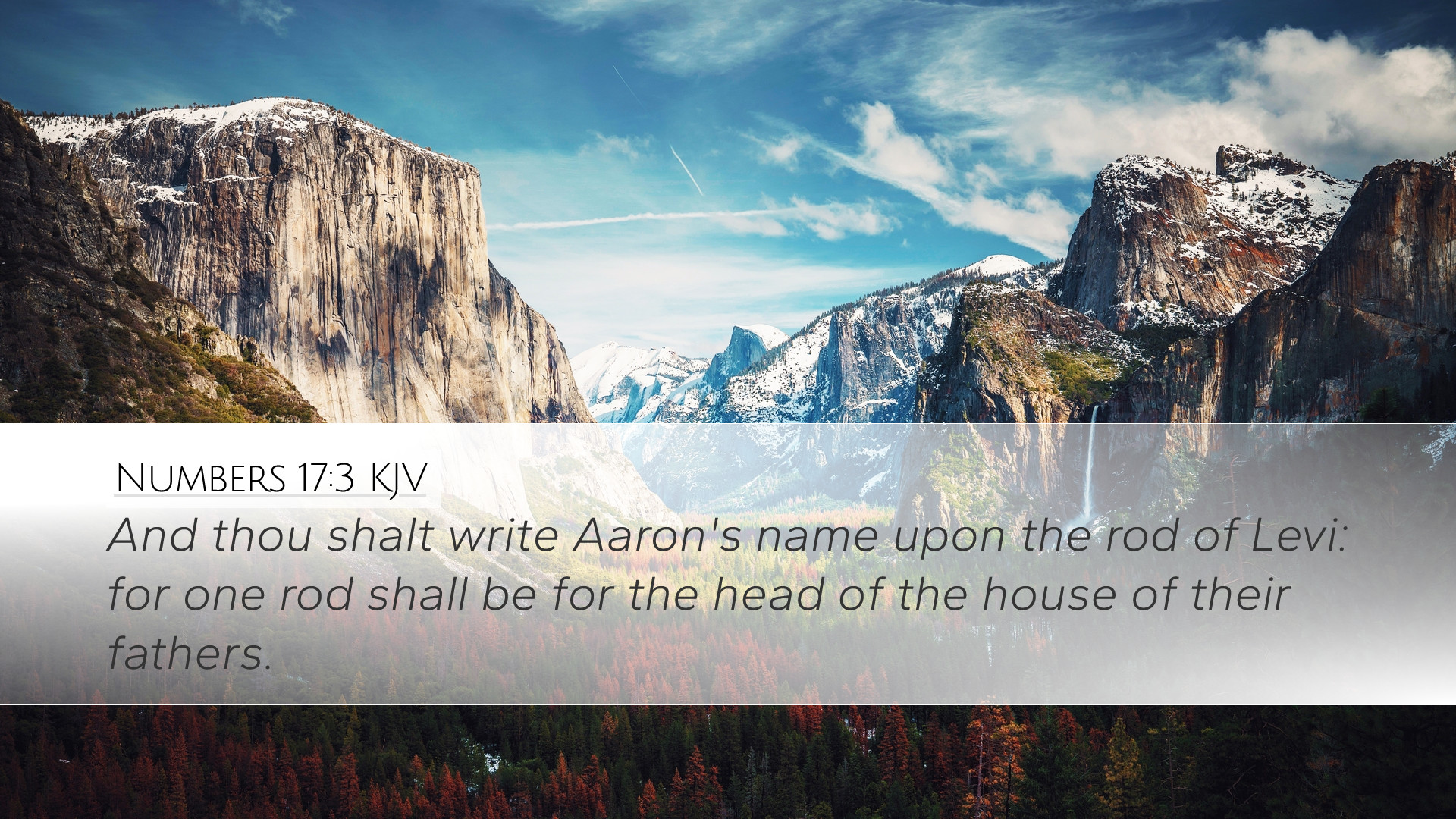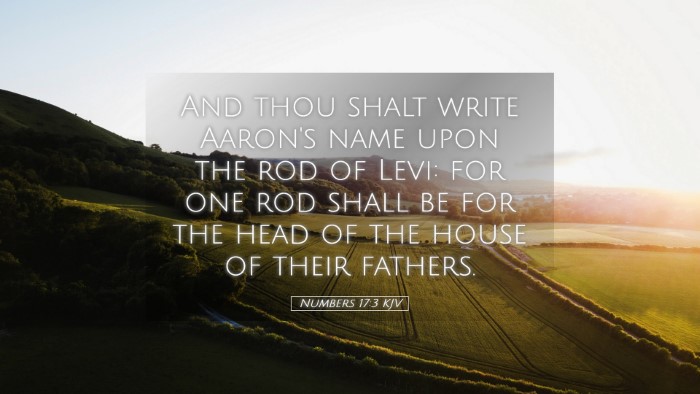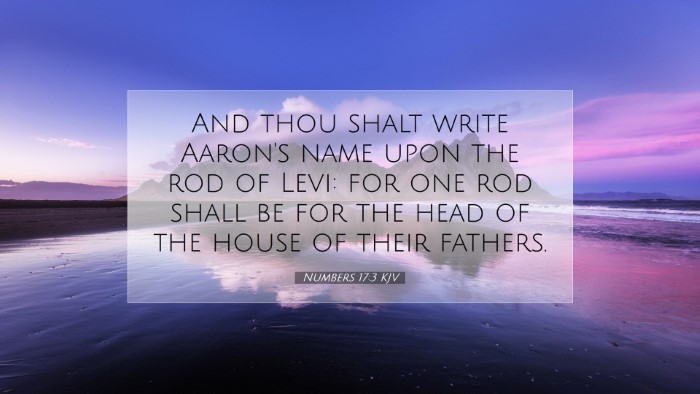Commentary on Numbers 17:3
Numbers 17:3 states: "And you shall write the name of each of the twelve tribes on his staff." This verse is a pivotal part of the narrative that underscores God's chosen leadership among His people. Below we explore its insights through the lens of established public domain commentaries.
Introduction to Numbers 17
This chapter follows the rebellion against God's chosen leaders, particularly Aaron, and serves as a divine confirmation of his authority. The choice of Aaron's rod as a sign of God's sanction is a powerful statement about divine selection and the importance of God's order among the Israelites.
The Importance of the Staff
Matthew Henry elaborates on the significance of the staff as a symbol of authority and leadership. In biblical contexts, a staff often represents guidance, protection, and power. The command to write the names of the twelve tribes signifies that God is establishing a clear method for identifying and empowering His chosen leaders.
Albert Barnes notes that this act of labeling each tribe’s staff had both communal and individual ramifications. Each tribe recognized its representation in Aaron’s priestly role, enhancing the unity and identity of the Israelites as a whole.
Divine Selection and Human Roles
This verse encapsulates the essence of divine choosing. Adam Clarke comments on the idea that God’s choice of leaders is not based merely on human criteria but on divine wisdom and purpose. Acknowledging that God appoints leaders reminds us of the importance of accepting and recognizing God’s choices, even when they may not align with our preferences or understanding.
- Acknowledgment of Authority: Writing the names on the rods illustrates that there is an acknowledgment from the people of the authority bestowed upon Aaron and his descendants.
- Representation: Each tribe being given a staff signifies that every community has a representation in God's plan, a profound insight that can be applied in congregational settings today.
- Divine Assurance: This verse provides assurance that God is at work behind the scenes, selecting leaders and establishing their authority.
Symbolism and Spiritual Application
Matthew Henry reflects on the spiritual symbolism involved in this command. The staffs become not only a record of leadership but a reminder of God's providence and guidance. Just as each tribe had a stake in Aaron's authority, modern-day believers are called to recognize their place in the body of Christ, supporting their leaders as they lead under God's direction.
Albert Barnes emphasizes the assurance this provides to the people; that the leadership over them is divinely ordained. This concept is crucial for followers today as it encourages them to trust in God’s methods and His appointed leaders.
Lessons for Today's Leadership
The leadership model illustrated in Numbers 17:3 is pertinent for contemporary church and community leaders. The class of leaders must be transparent, accountable, and recognized by their congregations. The names on the staffs represent a collective ownership among the constituents, reminding leaders of their responsibility to represent God faithfully.
- Encouragement for Leaders: Leaders today can draw strength from knowing they, too, are appointed by God for specific purposes.
- Responsibility of the Laity: The congregation's role is to respect and support those leaders whom God has chosen.
- Unity in Diversity: Just as each tribe had a distinct identity yet belonged to the same nation, today’s churches should celebrate diverse gifts and leadership styles while unified in purpose.
Theological Reflections
This passage invites theological reflection on God's sovereignty and the nature of His covenant relationship with His people. Adam Clarke articulates that God’s instructions to write the names is an act of inclusion, symbolizing grace. By choosing leaders from amongst the people, God demonstrates His continuing desire to involve human agency in His divine plan.
This connection between divine authority and human responsibility resonates deeply within the Christian faith, reminding all that they are participants in God’s unfolding story.
Conclusion
Numbers 17:3, while a specific instruction regarding the priesthood, carries broader implications that extend into contemporary Christian thought and practice. The insights from Matthew Henry, Albert Barnes, and Adam Clarke together remind us of the significance of God-ordained leadership, the importance of community acknowledgment, and the divine purpose that pervades all aspects of a believer's life. As we reflect on these themes, it challenges both leaders and congregation members to honor their respective roles within the body of Christ.


